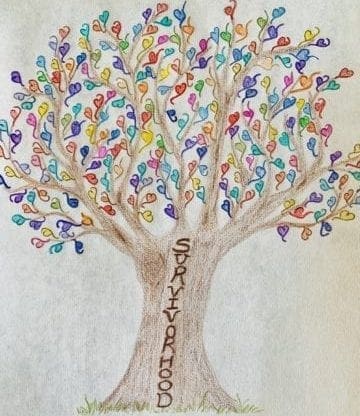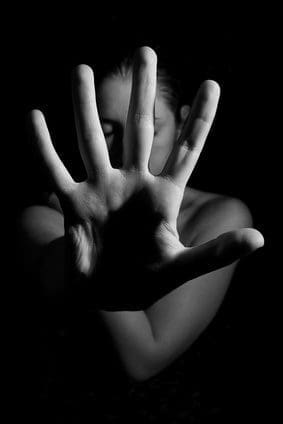I think we have all been bombarded with Facebook posts and conversations about forgiveness and how it is the most important key to our own healing and happiness. I never questioned it before. I mean, it sounds reasonable, right? True forgiveness has the ability to free us of the hurt, pain, and anger we hold onto as a result of some type of wrongdoing. It sounds liberating. I’m not here to argue the benefits of forgiving another. I’m here to tell you that it’s not the one and only way to feel and experience freedom from difficult feelings.
The thing most of us, myself included, struggle with when it comes to forgiveness, is feeling as though we are saying what happened was okay. The typical response to this is that it’s not about the other person, it’s about us as individuals relieving ourselves from the prison the offender has on our lives. I find this to be complete bullshit and this is why. The Oxford Dictionary’s definition of forgiving is as follows “stop feeling angry or resentful toward (someone) for an offense, flaw, or mistake.” The benefits of this, on the surface, seem completely logical. Again, you are released from those feelings. However, if you look at the synonyms of forgive you get the following three words “pardon,” “excuse,” and “exonerate.” When looking up the definitions of these words you will find the following: pardon – “forgive or excuse (a person, error, or offense),” excuse – “attempt to lessen the blame attaching to (a fault or offense); seek to defend or justify,” and exonerate – “(especially of an official body) absolve (someone) from blame for a fault or wrongdoing, especially after due consideration of the case.”
We as a society have struggled with forgiveness because the very definition of achieving it is through lessening the blame attached to a person. For those of you who are not familiar with my story on Survivorhood, my ex-husband tried to rape me. When I fought back, he pushed, kicked, and punched me before and after wrapping his hands around my neck to strangle me. He would have been successful had I not improvised at that moment. This was just one of the many times I experienced abuse in that marriage. During my restraining order hearing against him, he took the stand and lied under oath stating that none of that ever happened. Not only should the blame not be lessened for perpetrators of domestic and sexual abuse, but it should also be shouted from the highest building of the largest city. Because what he did is wrong. Because he not only made the decision to hurt me, several times, he denied it ever happened in the first place. As a society, we need to steer away from pushing forgiveness and instead push accountability, education, and mental health services so these things don’t happen in the first place.
For years I struggled with the internal emotional agony of forgiveness for that very reason. In addition to my PTSD symptoms, I wrestled with the guilt of not being able to forgive him. After all, the feelings I was experiencing were suffocating and the thought of breaking free of them was incredible. That all changed one day when a song came on the radio. It was “Praying” by Kesha. Every single word of that song spoke to me. It was clear she too must have experienced something horrific. I was hanging on every word, finally feeling like someone understood what I went through. In this song is one line that forever changed my life: “some things only God can forgive.”
At that moment, as I processed the fact that I didn’t have to forgive him – ever, I felt overwhelming feelings of peace and stillness – which is the exact opposite of everything those who push forgiveness say will happen. Yet here I was, free. Like the chains had broken. Up until this point I had put in the time and painstaking effort to heal from my trauma. I accepted that it happened to me while understanding that it shouldn’t have. To me, forgiveness was the last step to fully healing and as it turns out, it was also the very thing keeping me from it. Forgiveness is between my ex-husband and God. Ultimately, God decides who is forgiven anyway. By choosing not to forgive, I was set free because I knew I no longer had to worry about it – it was between him and God. I could take a stand and say what he did was not okay and was something I would never lessen the blame for – because the blame shouldn’t be lessened. So I chose to set myself free. And here I am today, no longer holding onto the hate and animosity, while also continuing to hold him accountable for his wrongdoings. I am continuing to heal. I am at peace. And it had nothing to do with forgiveness. It was a result of my decision to forget forgiveness. Sometimes forgetting forgiveness is the path to peace. The beautiful thing is, you, and you alone, get to decide that path for yourself.
Photo: Flickr – Silver Blu3

